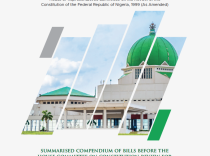On Wednesday 30th November 2016 the Labour Act (Amendment) Bill, 2016 was read for the second time in Senate. The bill seeks to delete sections in the Labour Act 2004 that restrict employment opportunities for women. Leading the debate on the objectives of the bill, Sen. Oluremi Tinubu (APC:Lagos) stated that effective eradication of unemployment was impossible without the review of legislations like the Labour Act 2004 which contains clauses militating against the ability of women to find and engage in honest work. She mentioned that Nigeria and other countries recognize and embrace equal opportunity for men and women and that the 1999 Constitution (as amended) enshrines freedom from discrimination on the basis of gender.
She then highlighted sections of the Labour Act 2004 proposed to be deleted. They include:
- Section 55 which prohibits women from engaging in night work;
- Section 56 which stipulates that ‘‘no woman shall be employed on underground work in any mine’’
- Section 57 that empowers the minister of labour to ‘‘make regulations prohibiting or restricting , subject to conditions as may be specified in the regulations, the employment of women in any particular type or types of industrial or other undertakings or in any process or work carried on by such undertakings; and
- Subsection (2) of section 58 which provides that any person who employs a woman in contravention of section 55 (1) or section 56 (1) shall be guilty of an offence and on conviction shall be liable to a fine not exceeding N100 or to imprisonment for a term not exceeding one month or both.
Sen. Tinubu further said that retention of the above provisions in the Labour Act 2004 would amount to a breach of the 1999 Constitution (as amended) and contravene the Eradication of Discrimination against Women (CEDAW) which was ratified by Nigeria in 1984.
The bill has been referred to the Committee on Employment, Labour and Productivity for further legislative work.





